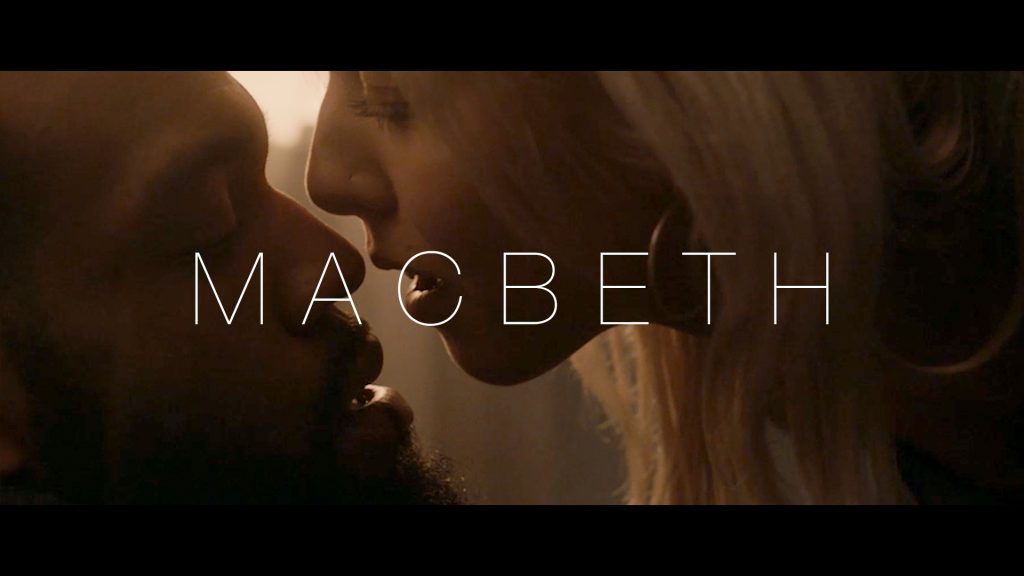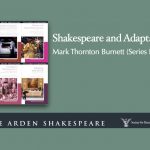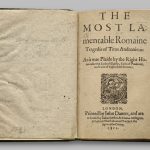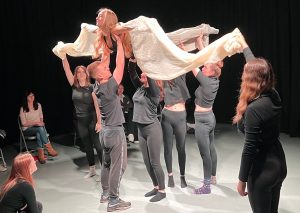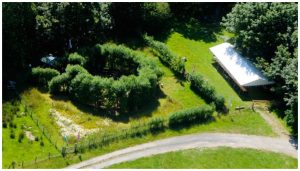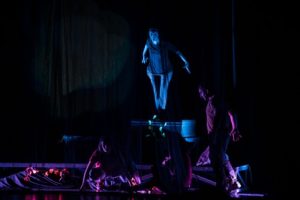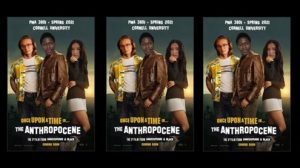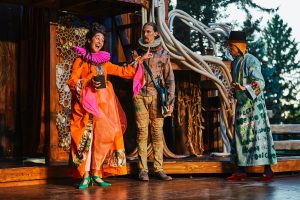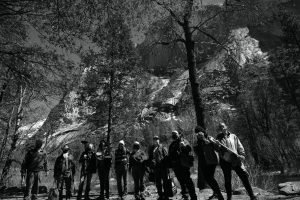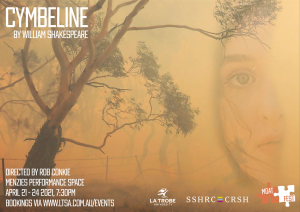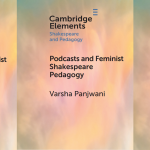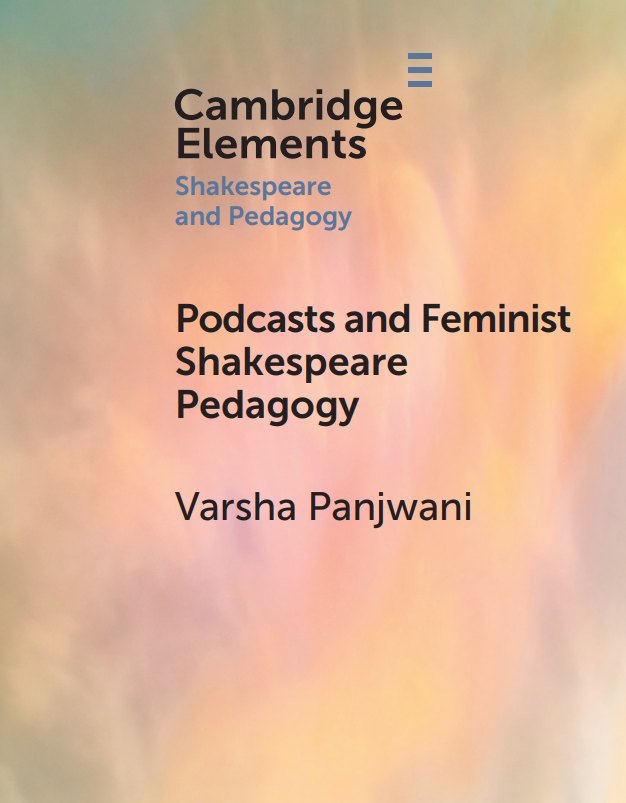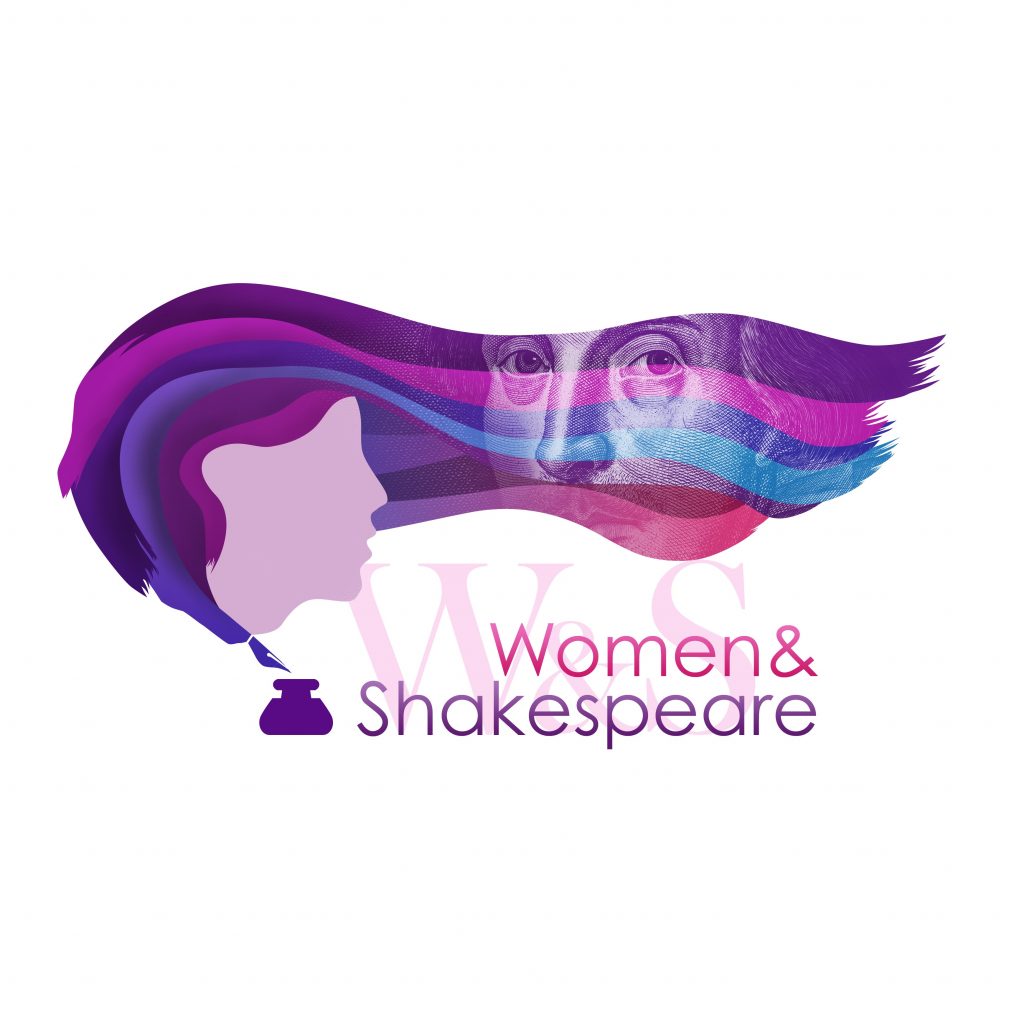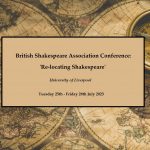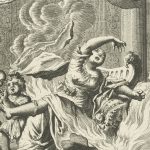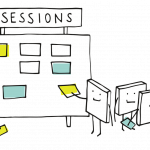
BSA 2023 Seminars and Workshops
24th October 2022
Self-enrolment for seminars and workshops is now closed. If you are a BSA member and you wish you submit a late enrolment, it might be possible to accommodate your request. Please email the conference organisers at british.shakespeare.conference[at]gmail.com
Please note: respective seminar / workshop leaders will be in touch with their groups in early Spring to provide an outline of how their particular session will be run, and invite abstracts, bios, etc. You do not need to send your abstract and bio to the BSA Conference email address.
SEMINARS
Re-wilding Shakespeare: Nature, Preternature, and Early Modern Climate
Convenors: Dr Todd Andrew Borlik (University of Huddersfield), Darryl Chalk (University of Southern Queensland), and Laurie Johnson (University of Southern Queensland)
Format: In-person
This seminar welcomes papers exploring Shakespeare’s representations of the environment: from Scottish heaths to Welsh mountains, from turbulent seas to fairy-haunted forests. Given the paucity of scenic design in the Renaissance playhouse, what literary and dramaturgical strategies does Shakespeare exploit to capture a sense of place or accommodate the drama of the more-than-human world? Has the modern, indoor, and electrified Shakespearean stage become too tame? If so, how might it be rewilded?
Theseus observes in A Midsummer Night’s Dream that the poet’s pen “gives to airy nothing a local habitation and a name” (5.1.13, 15-16) and mockingly concludes, “How easy is a bush supposed a bear!” (21). Yet with these words, Shakespeare cues for early modern ears a well-known premise that the “air” was rich with spirits, substances, and vapours. Thus, rather than conjuring something from nothing, poets and players worked with and upon the very stuff of life. The affective charge of the stage was heightened for audiences who believed that the air itself was transformed by the playhouse experience. To what extent, however, were the early moderns mindful of the air’s transformations during an era in which Europe experienced the “Little Ice Age”? Might folklore, humoral, magical, preternatural, or supernatural thinking have cued awareness of broad-scale shifts documented by climate historians and scientists? In what ways did floods, storms, earthquakes, and other cataclysmic events or unexplained phenomena impact the representation of environment and “local habitation” in the drama and literature of Shakespeare and his contemporaries? Did drama and literature inform local adaptations through which people coped with their changing world? This seminar invites papers of no more than 3,000 words (works-in-progress are encouraged) engaged with the dramatic or literary constructions of “local habitation” in response to perceived climate shift in Shakespeare’s age, site-specific adaptations of Shakespeare, reskinnings that speak to environmental concerns past and present, or relocations which chart intersections of the local and global.
Re-locating Shakespeare in 21st-century India
Convenors: Dr Thea Buckley (Queen’s University Belfast) and Dr Rosa García-Periago (University of Murcia)
Format: *ONLINE*
This seminar invites contributions that pay attention to the ways Shakespeare’s cultural clout has been appropriated, re-located and perpetuated in 21st-century India. It aims to understand how and why Shakespeare’s plays transitioned from symbolising British cultural dominance to inspiring a new generation of contemporary Indian artists and filmmakers. Re-locating Shakespeare in multiple languages, cinematic adaptations by national-award-winning directors Vishal Bhardwaj (Maqbool, 2002; Omkara, 2006; Haider, 2014), Jayaraj (Kaliyattam, 1997; Kannaki, 2001; and Veeram, 2016); Aparna Sen’s (Arshinagar, 2015) or Abhaya Simha (Paddayi, 2018) have certainly contributed to the national and international dissemination of India’s Shakespeare.
Digital-performance re-locations occur when television programmes such as Felicity Kendal’s “Indian Shakespeare Quest” (BBC, 2012) record kathakali performer Arjun Raina, featured here as Othello, confirming what he terms India’s lasting Shakespearean love-hate affair. Documentaries of local-language Shakespearean performance adaptations in Indian prisons, such as in Mysore or Kolkata (see Cavanagh, Shakespeare Survey 71), highlight the playwright’s hybrid national status today. Other productions feature re-locations of perspective and character via queer and alternative Shakespeares, such as the Tara Arts Macbeth (Jatinder Verma, 2015), documented by Sita Thomas (YouTube). On the whole, this seminar aims to draw attention to how Shakespeare’s cultural influence in the 21st century has been reinvented by India across local and diasporic communities for audiences at home and beyond.
Possible topics may include:
- Adaptations of Shakespeare’s plays on the Indian screen
- Performances of Shakespearean plays for Indian arts
- Indian-language translations of Shakespeare
- Shakespeare in Indian prisons
- Shakespeare in Indian classrooms
- Documentaries of Indian Shakespeare
- Visual, musical and other interpretations of Shakespeare with Indian themes
Women Reading, Editing, and Adapting Shakespeare
Convenor: Dr Koel Chatterjee (Trinity Laban Conservatoire of Dance and Music, UK)
Format: In-person
Shakespeare has always had a significant presence in contemporary fiction with a wide and varied audience across genres as far ranging as young adult romance, historical fiction, biofiction, dystopic fiction, urban fantasy, horror, and detective fiction. In all these genres, there is a growing body of novelised Shakespeare by female writers, as well as novels which are written from the perspective of Shakespeare’s female characters, particularly in historical and young adult genres. There is also a growing body of research on Shakespeare’s ‘Lady Editors’: Molly Yarn identifies more than 60 women who have contributed to the history of the Bard’s works which indicates the existence of an alternative version of Shakespearean editorial history. [1] This seminar seeks to revisit the relocation of Shakespeare plays into fiction to be read rather than watched, with a particular focus on female adapters, adaptations focused on the perspective of female characters, and the work of female editors and investigate how women reading Shakespeare offers insights into analysing and editing Shakespeare for our present times.
[1] Yarn, Molly G. Shakespeare’s ‘Lady Editors’: A New History of the Shakespearean Text. Cambridge University Press, 2021.
Re-locating the Early Modern Body: Processes, Porousness, Excretions
Convenors: Dr Anjna Chouhan (Shakespeare Birthplace Trust) and Prof. Pete Smith (Nottingham Trent University)
Format: In-person
Recent work in Early Modern studies aims to relocate critical attention to material cultures, for example Catherine Richardson and Tara Hamling’s project on ‘The Cultural Lives of the Middling Sort’. But in spite of this new focus on lived experience, there remains a taboo surrounding the representations of bodily processes / hygiene / sewage etc. The tired orthodoxy of the equivalence between human and the elemental – microcosm / macrocosm – might actually conceptualise an epistemological continuity between Man and the Natural World (Thomas, 1983) but, again, only by euphemising the actualities of households situated in an agrarian age without running water, antiseptic or anaesthetic. Shakespeare is bracingly unembarrassed by such actualities – Falstaff’s sweating bulk, Caliban’s fishy smell, Cloten’s BO, Gloucester’s eyes, Lavinia’s severed tongue, Edmund and Portia’s self-harming – all figure stage centre as theatricalised instances of bodily failure, destruction or damage. This seminar calls for contributions which attempt to re-locate the critical focus on the literary representations of bodies and bodily processes as they appear in the work of Shakespeare and his contemporary writers.
Questions asked might include:
- What is the difference between the humours as represented in Shakespeare and his contemporaries (poets or playwrights)?
- How does Shakespeare represent non-normative physicality – Richard III, Caliban – and mental breakdown – Ophelia, Constance, Lady Macbeth, Lear?
- How does Shakespeare engage with voluntary / involuntary bodily processes / physical functionality?
- What are attitudes to bodily discharge – sweat, blood, waste? Are these evidenced in material culture?
- How might such ‘taboo’ topics be approached in classrooms and performances?
“To sleep, perchance to dream”: Dreamscapes in Shakespearean Plays and Adaptations
Convenors: Dr Charlène Cruxent (University Grenoble Alpes) and Dr Nora Galland (University Côte d’Azur, Nice)
Format: In-person
After falling asleep, a whole new world awaits. Sleep enables dreamers to get access to an imaginary location usually set up by their own mind more or less consciously. The oneiric world is intrinsically liminal; it is a threshold between fantasy and reality, as Demetrius argues in A Midsummer Night’s Dream: “Are you sure That we are awake? It seems to me That yet we sleep, we dream” (4.1). Indeed, this imaginary location can be accessed either when we dream our night away or when we daydream. In Richard III, Ratcliffe also hints at this characteristic of dreams by reminding Richard that what happens in a dream is not real: “Be not afraid of shadows” (5.3).
Dreaming can be a wonderful experience as it is the case for Caliban who does not want his dream to stop: “In dreaming,/ The clouds methought would open, and show riches/ Ready to drop upon me; that, when I waked,/ I cried to dream” (The Tempest, 3.2). However, it may also prove a nightmare, something that terrifies the dreamers and makes them feel imprisoned.
In Richard III, Clarence admits to the keeper of the tower that he had a dreadful night: “I have passed a miserable night,/ So full of fearful dreams, of ugly sights” (1.4). In this play, the dream gives expression to the guilty conscience, as the ghost of Buckingham implies when he tells Richard, as if to punish him: “Dream on, dream on” (5.3). In King John, Philip the Bastard tells John about “people strangely fantasied; Possessed with rumours, full of idle dreams, Not knowing what they fear, but full of fear” (4.2).
Dreamers have the possibility to share their dreams with others by telling the story behind it and interpret it: “And by the way let us recount our dreams” (4.1), asks Demetrius to his friends in A Midsummer Night’s Dream. Dreaming may thus be connected to story-telling and to the very nature of drama – “such stuff/ As dreams are made on” (4.1).
This seminar invites contributions on Shakespeare’s plays that include (but are in no way restricted to) the following topics:
- Representations and metaphors of dream and sleep
- Dreams and the mapping of desire (idealization)
- Space and place: the geographical construction of dreams (ecocritical approach)
- Fantasy and Imagination
- The (un-)conscious
- The liminality of dreams (reality/fiction, daydreaming, somnambulism)
- The memory of dreams
- Relation between dream and night time
- Dreams and nightmares (creatures of the night)
- Dreams and the supernatural
- Dreams and premonitions/omens/visions
- Dreams and morality/ethics
- Dreams on stage and on film
- Dreams in the visual arts
- Adaptations and appropriations of dream sequences
Madness, Motion, and the Relocating Mind in Early Modern Drama
Convenors: Prof. Bridget Escolme and Dr Avi Mendelson
Format: In-person
Madness and mental illness are frequently described as a mind relocated. Extreme emotions – from the Latin e-movere or “to be moved somewhere else” – could provoke medical diagnosis and, in early modern England, even a trip to Bethlem (“bedlam”) hospital. Other terms surrounding psychic alterity also suggest either changing locations or an assault on stillness: unstable, distracted (from dis-trahere or “to draw away”), tripping, and ecstatic (from ek-stasis or “to move outside one’s self”). Mental disease, it would seem, is a mind transported to the wrong place at the wrong time.
Shakespeare’s works reveal an interest in madness and the mind in motion – and not only in his popular tragedies (Hamlet and King Lear) and mainstream comedies (The Comedy of Errors and The Taming of the Shrew); his fringe plays (Titus Andronicus and Timon of Athens) are also enthralled by the experience of mental peregrination. Other plays from the period – The Duchess of Malfi, The Changeling, and The Honest Whore, Part 1 – feature wild bedlamites whose vagrant minds won’t sit still. This seminar, accordingly, seeks vibrant new work on any aspect of madness and mental health in early modern drama.
Some (not all) subtopics we’ve been considering: links between physical relocation (travelling, wandering, and vagabondage) and mental relocation; loci of madness (hospitals, prisons, brothels, and theatres); intersections of madness and race, gender, sexuality, social class, nationality, and disability; madness’ relationship to other mental transport (dreaming, intoxication, ecstasy, error, confusion, and desire); and pedagogical approaches to madness and mental health in drama.
Relocating Shakespeare and Redefining Fidelity in Appropriation
Convenors: Dr Valerie M. Fazel (Arizona State University) and Prof. Louise Geddes (Adelphi University)
Format: In-person
This seminar aims to answer Christy Desmet’s call to rethink appropriation as a dialogic practice. The central questions that drive the seminar ask what it would mean to relocate Shakespeare back, placing him back at the centre of the appropriative process, and rethinking how the relationship between Shakespeare and his appropriators are defined. Led by theories such as the rhizome, appropriation studies has long discarded theories of fidelity, and yet, the most common critical approaches look outwards from Shakespeare, asking how we might read a new work under the influence of its source. More recent work, such as Rob Conkie’s theory of aftershocks instead extends an invitation to think about how artists and audiences alike use appropriation to return to Shakespeare. How might, for example, an appropriation invite a reconsideration or entirely new reading of a Shakespeare play? How might we talk about fidelity when Shakespeare’s unstable origins challenge the basic assumptions made about what an appropriation is faithful to? How might appropriation act as a process that reorients its audience to a new source that we define as Shakespeare? Alternatively, how might appropriation be deployed as a strategy to decolonize Shakespeare – or reaffirm his position in a white supremacy? This seminar, then, explores how we use appropriations to inform our understanding of Shakespeare at the center of a reading praxis and examines how artists and critics build our understanding of what Shakespeare is through the ancillary texts that respond to him.
Difficult Drama?: Relocating Shakespeare and his Contemporaries to the Classroom
Convenors: Dr Jennifer Rae McDermott (John Abbott College) and Mathieu D.S. Bouchard (John Abbott College)
Format: *ONLINE*
Shakespeare and his contemporaries can have a disorienting effect on students of all ages. The temporal, spatial, and social locations of original performance might, at first, seem distant from the worlds that our students inhabit. Undoubtedly our recent global experience of living through the pandemic reaffirms our connection to Shakespeare’s age by returning to plague masks, collective grief, and closed theatre-spaces. Yet, to make Shakespeare and his contemporaries accessible to students, educators must find innovative ways of relocating Shakespeare to the modern-day classroom. This online pedagogy seminar invites short papers (2- 3 pages) that examine specific examples of difficulties that students encounter when studying Shakespeare: confusing scenes; challenging topics; maddening characters; baffling textual cruxes; opaque language; nonsensical stage business; etc. Papers might reflect on successful (or unsuccessful) classroom activities designed to help students better understand the issues, cruxes, scenes, and characters in question, or they might offer examples of assignments or secondary readings that have allowed students to reflect on difficult passages in early modern texts. In the hopes of fostering dialogue across educational levels and of helping all educators better understand the larger context of their pedagogy, the seminar is particularly eager to accept papers from teachers working in a variety of institutions and educational settings, including primary schools, secondary schools, colleges, community colleges, universities, libraries, community organizations, or anywhere else where Shakespeare and his contemporaries are taught.
Who Owns Shakespeare?: Casting, Discrimination and the Performance of Location
Convenor: Dr Jami Rogers (University of Warwick)
Format: In-person
The production setting plays an important part in the casting process in contemporary Shakespeare, providing the audience and actors with a context for the plays in performance. The production setting has also been one of the primary tools directors have used to cast non-traditionally with recent examples being the 2012 productions of Much Ado About Nothing and Julius Caesar at the RSC with their all-Asian and all-African-Caribbean casts and Justin Audibert’s gender-flipped The Taming of the Shrew, also at the RSC. This seminar seeks to explore how locations provide opportunities for marginalized groups, including and not limited to women, people of colour, class, accent (Liverpool, Yorkshire, Scottish, Welsh), to perform in Shakespeare’s plays, groups that continue to be under-represented in the industry. The seminar seeks to interrogate how these location settings both perpetuate stereotypes and challenge discrimination in performance. Papers can be on any aspect of the location setting and casting, seeking to answer the question about who owns Shakespeare? How do directors, actors, and other personnel engage with inclusive casting and does the production setting help or hinder equity in twenty-first century Shakespeare?
Shakespeare, Here, Now: Locating ‘Relevance’ in Early Modern Drama
Convenors: Dr Beth Sharrock (Coventry University) and Dr Ella Hawkins (Shakespeare Institute, University of Birmingham)
Format: In-person
“Even now, now, very now” (Othello I.i). Over the past four centuries, the issue of Shakespeare’s ongoing relevance has been subject to extensive debate. The playwright’s works are continually reframed by theatre and film practitioners, educators, artists, and politicians as direct reflections of contemporary events.
This seminar seeks to investigate how the works of Shakespeare and early modern dramatists have, historically and today, been located in the present moment. We invite contributions that explore and interrogate claims of Shakespearean relevance, and the relevance of early modern dramatists across time and in different media (including, for example, performance, print, stage and costume design, pedagogy, and adaptation). The seminar welcomes 2,000-word papers or creative responses which consider questions such as:
- What is the role of relevance and temporality in the works of Shakespeare and his contemporaries?
- What claims of relevance and topicality have been made surrounding Shakespeare’s works, and are still being made today?
- What are the mechanisms by which Shakespeare’s relevance to particular historical moments has been cultivated and constructed?
- How is Shakespeare’s relevance constructed along temporal, geographical, and cultural lines?
- How might relevance contribute to circulations of Shakespeare’s contemporary cultural value?
- And what impact might claims of relevance have on the works themselves, as well as the contemporary events they are made to speak to?
Shakespeare and Banishment
Convenor: Dr Alex Thom (University of Birmingham)
Format: In-person
In Shakespeare’s drama, as James Joyce once wrote, “the note of banishment, banishment from the heart, banishment from home, sounds uninterruptedly.” This seminar invites papers on the topic of Shakespeare and banishment, broadly conceived. Papers might assay, but are not limited to:
- Comparative readings of banishment, e.g. across Shakespeare’s career, across sources, across his contemporaries, etc.
- Receptions and adaptations of Shakespeare’s banishment plots
- The intellectual contexts of banishment, e.g. banishment in legal traditions (common, canon, or civil); in religious discourses (Catholic, Anglican, Protestant); in philosophical works (Aristotelianism, Stoicism, neo-Platonic), etc.
- Close readings of banishment, as experiences, in Shakespeare’s plays or poetry
- The use of Shakespeare passages – e.g. Sir Thomas More – within modern discourses of displacement
- Reading Shakespeare in light of postcolonial scholarship on displacement and diasporas
- Staging banishments, or the dramaturgies of expulsion, from Shakespeare’s time to now.
WORKSHOPS
“Bring me the map”: Shakespeare and the Cartographic Imagination
Workshop Facilitator: Dr Sharon Emmerichs (University of Alaska, Anchorage)
Format: In-person
This workshop aims to examine the figuration of maps in Shakespeare, both as physical objects and representations of cultural concepts within his plays. From using a globe to perform a blazon of a woman’s body in A Comedy of Errors (“I could find out / Countries in her”), to King Lear’s use of a map to problematically divide his kingdom between his three daughters, to Maria’s description of Malvolio’s face as “the new map with the / augmentation of the Indies” in Twelfth Night (probably referring to Edward Wright’s map “A Chart of the World on Mercator’s Projection”), Shakespeare uses maps and cartography to emphasize cultural ideas of place, space, and (re)location throughout his comedies, tragedies, and histories. This workshop will examine his plays in conjunction with early modern maps to foment discussion about how Shakespeare uses maps as objects, representations, and figurations in his works, and how these examinations can help us better understand early modern culture.
I’m planning to have interactive exercises with the workshop participants in which we examine early modern maps (I will provide facsimiles/images) and cartographic literacy, working with maps as “storytellers” of cultural desires, anxieties, propaganda, etc., and then finding those cultural markers within Shakespeare’s plays. Ultimately, we will see how the early modern public’s understanding of cartographic imagination intersects with the literary and performative culture of England, and how the expression of (re)location using maps in Shakespeare helps define English identity itself.
Adapting Shakespeare: How the Macro Affects the Micro, and Vice Versa
Facilitator: Dr Lucy Eyre (Edith Cowan University)
Format: In-person
Using examples from my adaptations of Othello and The Merchant of Venice this workshop will examine how Shakespeare’s plays can be adapted at a macro and micro level. The modern-day production of Othello in 2014 was set in a compound of a fictional international security company; and the 2019 production of The Merchant of Venice at the New Fortune Theatre, University of Western Australia was set in 1938 fascist Italy, as sweeping laws were introduced that had implications across minority groups. The question of intention will be discussed in relation to reinterpretation and reimagining of Shakespeare’s texts, and interpolation of sounds, images, songs, dance, and stage business into productions. In particular, purposeful adaptations that highlight diversity, or have feminist or postcolonial agendas will be explored.
Theoretical and practical exercises will inspire participants to scrutinise and visualise Shakespeare’s plays within various contexts, such as: settings, historical periods, and/or social and political circumstances. Sections of the texts will be analysed to encourage participants to embrace the clues already provided by Shakespeare, and to look beyond the text to the real implications of adaptation when choices resonate throughout the play in production for characters, audiences, and society.
Researchers, playwrights, directors, and performers are invited to use this workshop to develop their own ideas for adapting Shakespeare’s plays, or to uncover possibilities of practice-based and practice-led research. The workshop will culminate in participants applying methods to other Shakespeare texts they may want to adapt, or in extending ideas already explored in the workshop.
How can we decolonise the teaching of Shakespeare?
Facilitator: Tania Roxborogh (Massey University)
Format: In-person
When the missionaries first came to Aotearoa in the early 1800s, they brought two books: the King James Bible and The Complete Works of William Shakespeare. These texts were used to ‘educate’ Māori – to teach them to read and write in English and to ‘become British’. For the next 140 years, the indigenous peoples’ language and wisdom was stripped from communities causing all manner of social issues, not the least poor education outcomes for Māori. Shakespeare was used as a tool to suppress and eliminate the Māori world seen by all outside the classroom. My research investigates ways that educators can bring the world and works of Shakespeare into the indigenous space without colonising the established and valued knowledge of tangata whenua (people of the land). How can we re-locate the thinking and wisdom of Shakespeare to a foreign land without trampling on the mana (the honour/respect) of indigenous people who are striving to reclaim the value of their own stories?
This workshop will focus on effective strategies teachers can use in their own classrooms, regardless of where they are in the world, that allows their students to make connections with Shakespeare to their own cultures, thus uplifting the mana and value of both – bringing the dislocated worlds together.
Teach-Meet
Facilitator: TBC
Format: In-person
This teach-meet is aimed primarily at high school teachers and anyone with an interest in pedagogy and teaching. Participants will be invited to give very brief (c.5 min) presentations on any topic pertaining to teaching, curriculum, or pedagogy, followed by discussion.

